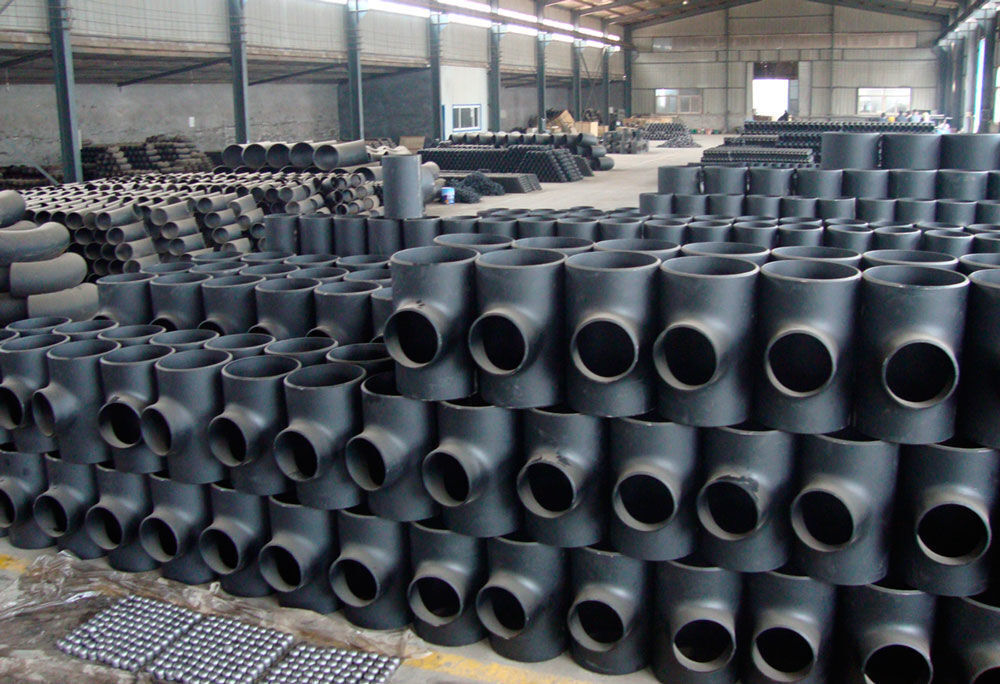Applications of MS Fittings in Industrial Piping Systems

Mild steel (MS) fittings are essential in industrial piping systems and are known for their strength, durability, and adaptability. These fittings connect, redirect, and control the flow of fluids and gases in various industries. MS fittings are critical in ensuring efficiency and safety from oil and gas to construction. This blog explores the diverse applications of Mild Steel Fittings and how they contribute to the functionality of industrial piping systems.
What are MS Fittings?
Mild steel (MS) fittings are mechanical components made from carbon steel. They are specifically designed to connect pipes, change direction, control flow, and manage pressure within industrial piping systems. MS fittings come in various forms, including elbows, tees, couplings, reducers, and flanges, each serving a unique purpose in a piping network. These fittings are appreciated for their high-pressure and temperature resistance capabilities.
Key Applications of MS Fittings in Industrial Piping Systems
Oil and Gas Industry
- Transporting Crude Oil and Refined Products: MS fittings are widely used in pipelines to transport crude oil, natural gas, and refined petroleum products. Their strength and durability make them suitable for withstanding high-pressure environments, ensuring safe and efficient flow.
- Offshore Platforms: On offshore platforms, MS fittings connect and maintain pipelines that transport oil and gas from undersea wells to onshore processing facilities. Their resistance to corrosion and ability to endure harsh environmental conditions are crucial.
- Refining and Processing Plants: MS fittings transport chemicals and other refined products in refineries. They provide reliable connections for processes involving high-temperature and high-pressure conditions.
Construction and Infrastructure
- Water Supply and Drainage Systems: MS fittings are normally used in water supply systems such as pipelines and irrigation systems. They help connect pipes of varying sizes and control water flow, ensuring efficient distribution and management.
- Fire Suppression Systems: MS fittings are applied in fire protection systems to ensure water pressure in sprinklers and pipes. This ensures that these systems work well, especially under high-pressure circumstances.
- Building HVAC Systems: MS fittings are used in heating, ventilation, and air conditioning (HVAC) systems, allowing smooth air and fluid movement through pipes. They are chosen for their resistance to corrosion and ease of installation.
Power Generation
- Steam and Condensate Lines: MS fittings are essential in power plants where steam and condensate lines require secure connections and efficient flow control. They help manage the pressure and temperature in these systems, ensuring optimal energy production.
- Cooling Water Systems: In power generation facilities, MS fittings connect pipes and control the flow of water used to cool the system. Their durability is vital for maintaining efficient cooling and preventing overheating.
Chemical and Petrochemical Industries
- Transporting Hazardous Chemicals: MS fittings transport various chemicals and petrochemicals, including acids, solvents, and gases. Their resistance to corrosion and pressure allows for safely handling these substances.
- Process Lines: In petrochemical plants, MS fittings connect process lines that involve high temperatures and pressures. Their ability to maintain integrity under such conditions makes them indispensable.
Manufacturing and Industrial Processes
- Fluid and Gas Control: In manufacturing facilities, MS fittings are used to control the flow of gases and fluids in pipelines. Their versatility allows for quick and efficient installation, enabling manufacturers to respond to process changes rapidly.
- Pressure Relief Systems: MS fittings are used in pressure relief systems to manage excess pressure in pipelines and prevent accidents. Their strength ensures that they can handle extreme pressure conditions safely.
Advantages of Using MS Fittings in Industrial Piping Systems
- High Strength and Durability
MS fittings are made from carbon steel, making them strong enough to handle high-pressure and high-temperature applications. This strength ensures long-lasting performance even in the most demanding industrial environments.
- Versatility
The variety of MS fittings, including elbows, tees, and reducers, makes them adaptable for numerous applications. They can be easily customized to fit specific piping requirements, ensuring flexibility in design and installation.
- Cost-Effective
Compared to other materials, MS fittings are relatively affordable, making them a popular choice for both large and small-scale industrial projects. Their durability also reduces maintenance costs over time.
- Corrosion Resistance
Modern manufacturing techniques and coatings improve the corrosion resistance of Mild Steel Fittings, making them suitable for use in environments exposed to moisture, chemicals, and extreme temperatures.
- Easy Installation and Maintenance
MS fittings are easy to install, which means that the time taken to construct and maintain piping systems made from this material will be relatively less. Their compatibility with different pipe materials also makes them easy to retrofit into existing systems.
Conclusion
Mild steel fittings are a cornerstone of industrial piping systems, providing strength, adaptability, and reliability. From the oil and gas industry to chemical plants and power generation facilities, MS fittings ensure the safe and efficient transport of fluids and gases. Their ability to handle high-pressure and temperature conditions and their cost-effectiveness make them an invaluable choice for engineers and project managers.
By understanding the applications and advantages of Mild Steel Fittings, industries can make informed decisions about their use, ensuring optimal performance and longevity for their piping systems.









